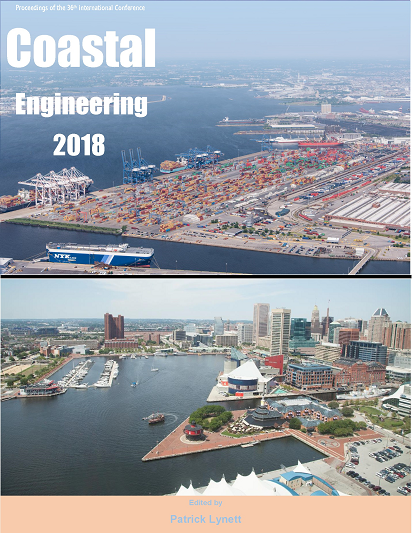Abstract
Kriebel and Dean (1993) developed a simple approach to quantify the beach profile response to a time-varying sea level. It is based on the equilibrium concept implying that if a beach profile is exposed to a constant wave and water level climate it will attain a specific shape ( i.e., the equilibrium beach profile; EBP). A change in the forcing conditions will make the profile move towards a new equilibrium state, which will be attained if these conditions prevail sufficiently long. For the case of typical sea level rise (SLR), the change in the forcing conditions is slow enough so that the profile has time to adjust towards the EBP at any given time. In this study, new analytical solutions are developed based on the convolution method to describe beach profile response to sea water level change.References
Bruun, (1962) : Sea level rise as a cause of shore erosion , J. of Waterways and Harbors Division, 88 (1), pp. 117-130
Kriebel and Dean (1993) : Convolution method for time dependent beach profile response, J. of Waterway , Port, Coastal, and Ocean Engineering , 119 (2), pp. 204-226 .
Authors retain copyright and grant the Proceedings right of first publication with the work simultaneously licensed under a Creative Commons Attribution License that allows others to share the work with an acknowledgement of the work's authorship and initial publication in this Proceedings.

